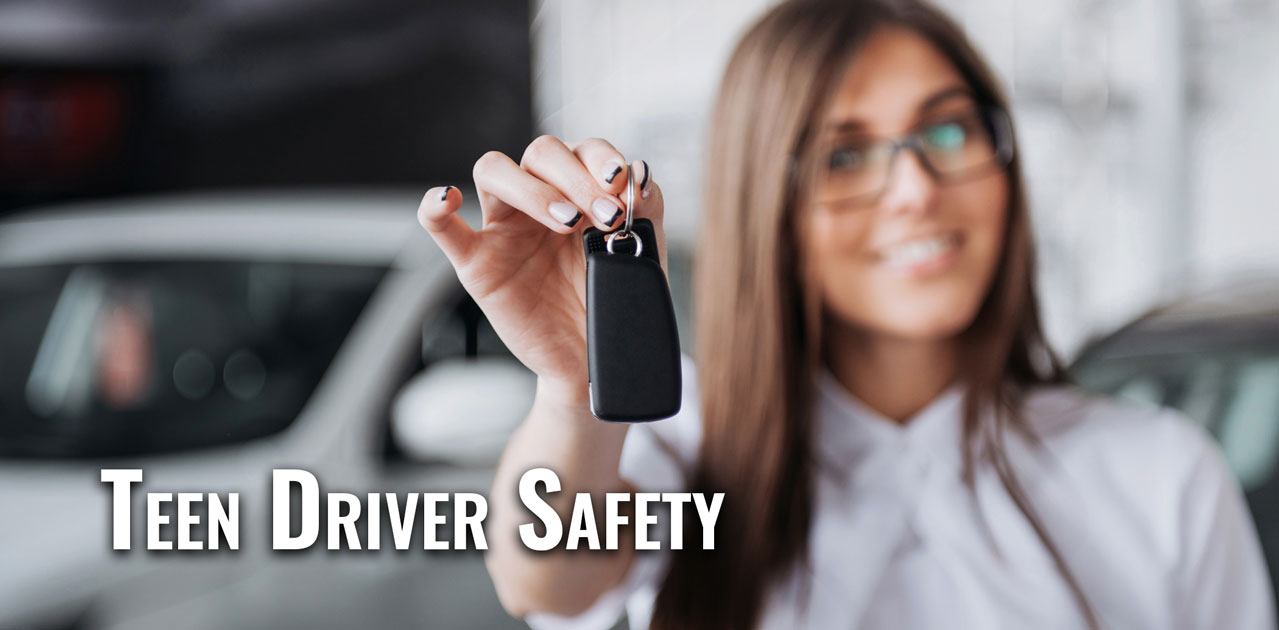October 17-23 is National Teen Driver Safety Week. During this week, the U.S. Department of Transportation’s National Highway Traffic Safety Administration encourages parents to have important conversations with their teenagers about staying safe behind the wheel.
Here are some tips to share with your teenager about safe driving.
According to the United States Department of Transportation, 2,042 people were killed in crashes involving teenage drivers in 2019.
Half of all teens will be involved in a car accident before graduating high school, with car crashes being the leading cause of death among people ages 15 to 18.
Don’t drive while distracted.
Research shows that texting and driving increases crash risk 23 times. Educate your teen on the dangers of driving distracted—this includes eating, applying makeup and adjusting the radio, in addition to cell phone use.
Don’t Drink or Do DrugsDrinking or doing drugs is both illegal and dangerous while driving a vehicle. Remind your teenager that they should never get in the car with someone who is impaired—in addition to never drinking and driving themselves. Remind your teenager that they can call you or another trusted adult for a safe ride home if they need one.
Limit PassengersStudies show that a teenager is two-and-a-half times more likely to engage in risky behaviors while driving with a peer. Familiarize yourself with your state’s graduated driving law and enforce these requirements with your teen driver.
Don’t SpeedSpeeding was a factor in 27% of fatal teen crashes in 2019. Closely monitor your teen to ensure safe driving behavior. Be a good role model and don’t speed with your teen in the car.
Wear a SeatbeltSeat belt use is lowest among teenage drivers. In 2019, 45% of teenage driving fatalities were not wearing a seatbelt. Talk to your teen-ager about why seat belts are important. Set the example by always wearing your seat belt with them in the car.
Don’t Drive While DrowsyStudies suggest drowsiness may be a factor in 10% to 20% of fatal or injury crashes. Drivers between 17 and 23 are one of the groups most prone to drowsy driving. Carefully monitor and limit your teenager’s night driving in accordance with state guidelines.
For additional guidance on safe driving, contact us today.

